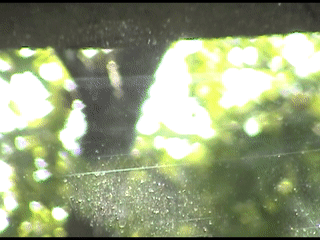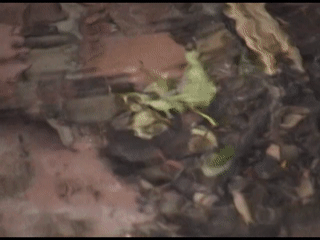Marty Cain
Robert Penn Warren Poem
On my computer hard drive, there’s an untitled .docx file from August 24, 2013. It has one line of text: “I love narrative poetry because I want to live forever.”
/
Robert Penn Warren has a poem titled, “There’s a Grandfather’s Clock in the Hall.” Warren begins by invoking a patrilineal conception of narrative and Time, a force that is vile, violent, and fragile: like a sad man masturbating off the edge of the cliff: like white masculinity as an ugly delicate loneliness: like after I cum and cry into my pillow while light comes through the blinds and makes bars on the bed.
There’s a grandfather’s clock in the hall, watch it closely. The minute hand stands still, then it jumps, and in between the jumps there is no-Time…
For Warren there is Time and No-Time, there is masculinity and its infinite ego but also the threat of the abject woman. Warren’s speaker—addressing the reader in the second person—discursively shifts from the image of the clock through a variety of moments throughout a person’s life (ostensibly Warren’s). He begins in a presexual, oracular space: You are a child again, watching the reflection of early morning sunlight on the ceiling above your bed.
/
When I’m 18 years old—two months before I leave for college—my father tells me.
He’s reading a draft of a terrible novel I wrote. The protagonist is bullied (like me). The protagonist is in high school (like me). The protagonist feels unmanly (like me). The protagonist has hairless pits (like me).
One of the characters says to the protagonist, You’re a faggot.
My father reads this passage—I’m standing in the kitchen, he’s sitting at the counter—and he looks up at me:
He says, You know this is an offensive word, right?
I say, It’s in dialog.
He says, It’s like the N-word for gay people.
I say, It’s in dialog.
He says, I mean, you know I’m gay, right?
And I stagger backwards.
/
Warren hits puberty. Warren holds his breath underwater. Warren holds his breath just long enough for one more long, slow thrust to make the orgasm really intolerable, and we know now that Time is a violent white cock, that narrative virtue lies in its control and its colonization of the abject other, with the unwhite body & the dickless body, with the orientalist sweep towards the night-swept steppes of Asia. And Warren’s gaze now turns towards his mother, who was married as a virgin, and your heart overflows, and you watch her with tears in your eyes & then Warren fucks thru time and finds her rotting on the death bed finally, She is lying on her back, and God, is she ugly and the male poet hurts and the male poet hurts and is a solid body who jerks off alone into a bowl of raw meat.
/
A month after the incident with my father happened, I sat on the porch with my friend G. We were smoking a joint. I felt depressed.
I said, This sucks dick.
She said, So does your dad.
/
When I find out my father is gay, I spend three days hyperventilating. When I find out, I don’t even speak. When I find out, I dream about saltwater and swimming to the bottom and touching a face and it being my father’s. When I find out, I ride the bus. I walk through mud. When I find out, I write MARRIAGE on paper one hundred times and breathe like a dog in the phone receiver. When I find out, I break up with my girlfriend. When I find out, I intermittently cry and watch pornography on the sofa while my parents are at work.
It eventually surfaces that my father had come out to my mother—and virtually everyone else—five years before. My parents had made the decision to stay married (in an agreement roughly resembling an open relationship, though they’re more like best friends), and they both agreed not to tell me for several years.
For the first time, I find myself attracted to threesomes—with two men and one woman—and I can’t discern whether my arousal comes from a fetish for male dominance, from a latent bisexuality, or from both. I tell my mother, I like men. My mother says, No you don’t.
/
I said to my father, Why didn’t you tell me sooner?
He said, I didn’t want you to be the guy in high school with the queer dad.
He said, I did this for you.
/
Is childhood Arcadian? When I look back on my youth, I remember snapshots that hang in my head on a clothesline over a tub in an apartment that shakes when the train comes through; the afternoon shines in the dirty window and dapples the photos with a membrane of gold; the moving walls, the cracking plaster. I woke to dust floating in light. I woke up in the middle of the night and felt empty inside but in a joyful way, I started smiling, & the moon was a sheet on the midnight snow.
/
If there was ever any sense of narrative continuity in my life (and I believe there once was), it collapsed in the moment my dad told me. As I staggered backwards, there was only No-Time. As I staggered backwards, something died and rotted in my upper chest. As I staggered backwards, I remembered the yellow slide spiraling in the yard and yelling inside with my shaking voice. As I staggered backwards, I remembering saying Where’s dad and my mom said He’s at the pool, and my dreams that night smelled like chlorine in the dark.
As I staggered backwards, I remembered Bob, a Canadian physician, a friend of our family. Dad and Bob had gone skinny-dipping, and came back dripping from the river in the middle of the night, Don’t tell your mom, my dad had said.
As I staggered backwards, I remembered going on my father’s laptop when I was nine years old. I saw a chatroom for gay outdoorsmen left open on his browser. I asked my mother, Is Dad a pervert?
As I staggered backwards, I remembered how my parents had been married twenty years, I’d never seen them kiss. I’d seen my dad make my mom cry on Christmas once as she ran up the stairs and slammed the door, I remember how we visited Bob until one day we never saw him again, I was with my dad, we were in the car, he was listening to Wagner, I said Why don’t we see him anymore?
He said We’re not friends. And it’s your fault.
/
I love my father.
/
When I first read Warren, I was 22, in my MFA program. My first graduate workshop was taught by XXX, an elderly Southern white male poet. He was an infamously brutal workshop instructor; a former high-school football coach, XXX would take a highly evaluative approach towards discussing our poems. Virtually every student in our class cried at some point, and our stress developed to the extent that we’d often show up to class drunk or high.
XXX rarely dignified our work as “poetry.” This is not a poem, he’d say. All poetry is narrative poetry, he’d say. Art only exists if it’s repeatable, he’d say. “Philosophy” is an ambiguous word, and I distrust it, he’d say. You seem to have feminist urges, he’d say.
On the rare occasion that he actually liked one of our poems, he might say: This is a poem, Marty, but you’re not yet a poet. His veneration of the title “poet”—and especially “poem,” as a static, autonomous object—struck me as revoltingly New Critical; a disjunctive collision between Romantic conceptions of artistry and institutionalized, capitalistic values.
Despite essentially being a has-been poet himself, XXX had been friends with Robert Penn Warren, James Dickey, Larry Levis, and numerous others. Some of these individuals—especially Levis—were poets who’d been very influential on my work, so in some way, I felt compelled to listen to what XXX had to say. In one of his favorite stories, XXX would tell of how Dickey, on his death bed, had kissed XXX’s hand. What do you make of that? he asked our class, both visibly insecure and curious of our opinion. What was that all about?
When I’d meet XXX for office hours, I’d sit in the corner. He’d face me in his chair with his legs open, the outline of his dick bulging through his business shorts. One day I told him, I’m starting to feel limited by the constraints of narrative. I want to write something more explosive.
He said, You’ll grow out of that.
/
Describe your poetic lineage, the white male professor says.
This is my first poem about my father.
/
When I consider Warren’s relationship with Time, I often think of his desire to step outside it—to hover above it like film on milk, like a membrane of fog on a pasture, to give the illusion of relinquishing control, but in actuality, wielding it authoritatively—as if to say, I can step outside this poem, BECAUSE I OWN IT. I can survey this Arcadian field from afar, BECAUSE I OWN IT. I can conceal process, blood, and bodies, BECAUSE I AM A GOD. I am a white man who owns Time. This is for me, and I WILL LIVE FOREVER.
/
After it happened, I knew there were secrets. I projected backwards. For years I’d been lying on the porch in summer with the worms beneath and the soil churning, but there were no levels, there was no Time, there was no air between me and the grave.
/
When I was in middle school, I remember leaning over to retrieve something from my locker. A circle of larger boys came around me, grabbed me around my waist, and took turns pummeling me with their crotches, pretending to fuck me in the ass, breathing heavily. I half-smiled—I may have even laughed—because what else do you do. How does it feel to have lost your anal virginity? one asked. And they walked away.
/
After this happened, I ate my lunch (gluten-free mac and cheese). I showered after gym class. I bought weed from a guy on the track team, who stealthily placed it in my bag. I rode home on the bus, and I stared out the window. I fell asleep.
Young lady, the driver said, this is your stop.
I’m a boy, I said.
Nothing about the locker incident seemed traumatic that day. And I’m not even sure if it qualifies as trauma now, but I do know that when I think of my middle school years—when I think of the bullying I endured, my body and masculinity issues, my aversion to food that verged on an eating disorder—I return to that moment. I think of that moment always. I even remember, a few years later, joking about it with another boy—How does it feel to have lost your anal virginity—isn’t that funny?
Does anyone own their memories? How do I write like I’m going to die?
/
Shivered into flowers.
/
Q:
If, as Lee Edelman suggests, queerness means no future—an embrace of the death drive, a rejection of the heteronormative thrust through Time and No-Time and the phantasmagoric feminine, of the endless desire to procreate—what does a queer narrative poetics entail?
A:
A POETICS WHERE PROPERTY DOESN’T EXIST
A POETICS FLOWING FROM THE NARRATIVE WOUND
And I was a child again, watching the reflection
of early morning sunlight on my bed.
Marty Cain is the author of the book Kids of the Black Hole (Trembling Pillow Press, 2017). His work has appeared (or will appear) in Fence, Action Yes, Cloud Rodeo, Gigantic Sequins, The Pinch, and Tarpaulin Sky. He received an MFA from the University of Mississippi, and presently resides in Ithaca, New York, where he is pursuing a PhD in English Language & Literature at Cornell. Find him online here.




